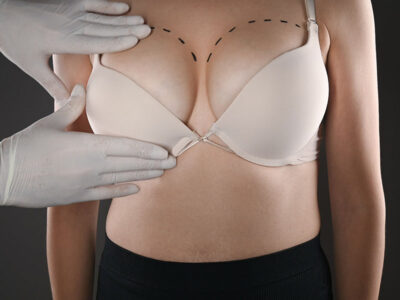
Heart disease is a leading cause of mortality, making early detection and accurate diagnosis crucial for effective treatment. An echocardiogram is one of the most valuable tools in diagnosing heart conditions, providing detailed images of the heart’s structure and function. For residents of Palm Springs, understanding the role of an echocardiogram in Palm Springs can empower you to make informed decisions about your heart health.
What is an Echocardiogram?
An echocardiogram is a diagnostic test that uses ultrasound waves to produce images of the heart. This non-invasive procedure allows doctors to see how the heart muscles and valves are working, offering a clear view of the heart’s chambers and blood flow.
Types of Echocardiograms
- Transthoracic Echocardiogram (TTE): The most common type, where the ultrasound device is placed on the chest to capture heart images.
- Transesophageal Echocardiogram (TEE): Involves passing a probe down the esophagus to get a more detailed image, particularly when standard TTE images are insufficient.
- Stress Echocardiogram: Conducted while the heart is under stress, either through exercise or medication, to evaluate how the heart performs under pressure.
Why is an Echocardiogram Important for Diagnosing Heart Conditions?
An echocardiogram in Palm Springs plays a crucial role in diagnosing various heart conditions. It provides comprehensive information that helps in the early detection and management of heart diseases.
Detecting Valve Disorders
Heart valves regulate blood flow through the heart, and any dysfunction can lead to serious health issues. An echocardiogram can detect valve disorders like:
- Aortic Stenosis: Narrowing of the aortic valve, restricting blood flow.
- Mitral Regurgitation: Leakage of blood backward through the mitral valve.
- Tricuspid Valve Disorders: Abnormalities affecting the tricuspid valve’s function.
Identifying Cardiomyopathy
Cardiomyopathy refers to diseases of the heart muscle that can lead to heart failure. An echocardiogram can help in diagnosing:
- Dilated Cardiomyopathy: Enlarged heart chambers with weakened muscle contractions.
- Hypertrophic Cardiomyopathy: Thickened heart muscle, often affecting the septum between the ventricles.
- Restrictive Cardiomyopathy: Stiff heart muscle that restricts proper filling of the heart chambers.
Diagnosing Congenital Heart Defects
An echocardiogram is essential for identifying congenital heart defects, which are structural abnormalities present from birth. These may include:
- Septal Defects: Holes in the walls between heart chambers.
- Patent Ductus Arteriosus (PDA): An open blood vessel that should have closed after birth.
- Tetralogy of Fallot: A combination of four heart defects that affect normal blood flow.
The Process of Getting an Echocardiogram in Palm Springs
If you or a loved one needs an echocardiogram in Palm Springs, here’s what you can expect during the process:
Scheduling the Test
- Referral: Your primary care physician or cardiologist may refer you for an echocardiogram based on symptoms or risk factors.
- Appointment: Schedule an appointment at a local clinic or hospital equipped with echocardiogram facilities.
Preparing for the Test
- Fasting: For certain types of echocardiograms, like TEE, you may be asked to fast for several hours before the test.
- Medication Review: Inform your doctor about any medications you’re taking, as some may need to be adjusted before the test.
- Comfortable Clothing: Wear loose-fitting clothes for ease during the procedure.
During the Test
- Transthoracic Echocardiogram: You will lie on a table while a technician applies gel to your chest and moves a transducer over the area to capture images.
- Transesophageal Echocardiogram: You may be sedated, and a small probe is inserted down your esophagus to take images from inside your body.
- Stress Echocardiogram: You will exercise or take medication to increase your heart rate before the echocardiogram images are taken.
Interpreting the Results
After the echocardiogram, a cardiologist will review the images and provide a detailed report. The results may indicate:
- Normal Heart Function: The heart and valves are functioning correctly with no abnormalities detected.
- Abnormal Findings: Any abnormalities, such as valve dysfunction, heart muscle issues, or structural defects, will be noted, and further tests or treatments may be recommended.
Benefits of Having an Echocardiogram in Palm Springs

Choosing to have your echocardiogram in Palm Springs offers several benefits:
- Access to Experienced Cardiologists: Palm Springs is home to highly skilled cardiologists who specialize in heart imaging.
- Advanced Diagnostic Facilities: Local clinics and hospitals are equipped with state-of-the-art echocardiogram technology.
- Comprehensive Heart Care: In addition to echocardiograms, Palm Springs offers a wide range of cardiac care services, ensuring complete and coordinated care.
Conclusion
An echocardiogram in Palm Springs is a vital tool in diagnosing heart conditions. Whether you’re experiencing symptoms, have a family history of heart disease, or are undergoing routine heart health monitoring, this non-invasive test provides essential insights into your heart’s health. Understanding its role in diagnosing heart conditions can help you take proactive steps in managing your cardiovascular health and ensuring a healthier future.
FAQs
Q: How soon will I get the results of my echocardiogram?
A: Results are typically available within a few days, depending on the healthcare provider.
Q: Can an echocardiogram detect a heart attack?
A: While an echocardiogram can show damage from a previous heart attack, it’s not the primary tool for diagnosing an ongoing heart attack.
Q: Is an echocardiogram safe?
A: Yes, echocardiograms are generally safe and non-invasive, with no known risks.
Q: Do I need a referral for an echocardiogram in Palm Springs?
A: It’s best to check with your healthcare provider, as referrals may be required depending on your insurance and specific health needs.








